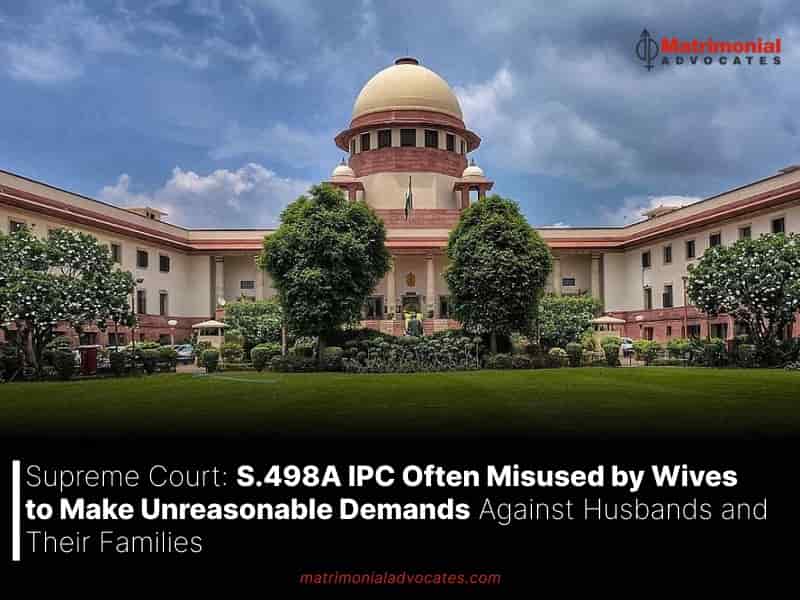
On December 10, the Supreme Court dismissed a Section 498-A IPC (cruelty) case filed against a husband and his in-laws, emphasizing concerns about the growing trend of implicating an entire husband’s family in matrimonial disputes.
The Court strongly criticized the rising misuse of provisions like Section 498-A IPC as tools for personal vendettas against husbands and their families.
Last month, the Court also advised judicial bodies to exercise prudence in preventing the wrongful implication of distant relatives of a husband in criminal cases alleging domestic cruelty by a wife.
A bench of Justices B.V. Nagarathna and N. Kotiswar Singh noted that Section 498-A IPC is increasingly being misused by wives or their relatives as a legal weapon to settle personal grievances against the husband and his family. Such misuse distorts the original purpose of the provision, which was designed to address genuine instances of cruelty against women and ensure swift state intervention.
“The inclusion of Section 498A of the IPC by way of an amendment was intended to curb cruelty inflicted on a woman by her husband and his family, ensuring swift intervention by the State. However, in recent years, as there have been a notable rise in matrimonial disputes across the country, accompanied by growing discord and tension within the institution of marriage, consequently, there has been a growing tendency to misuse provisions like Section 498A of the IPC as a tool for unleashing personal vendetta against the husband and his family by a wife. Making vague and generalised allegations during matrimonial conflicts, if not scrutinized, will lead to the misuse of legal processes and an encouragement for use of arm twisting tactics by a wife and/or her family. Sometimes, recourse is taken to invoke Section 498A of the IPC against the husband and his family in order to seek compliance with the unreasonable demands of a wife. Consequently, this Court has, time and again, cautioned against prosecuting the husband and his family in the absence of a clear prima facie case against them.”, the judgment authored by Justice Nagarathna said.
The Court heard a criminal appeal filed by the husband and his in-laws, challenging the Telangana High Court’s refusal to quash a domestic cruelty case brought against them by the wife.
The wife had filed the case after the husband initiated divorce proceedings.
Criticizing such misuse, the Court emphasized that Section 498-A IPC was enacted to safeguard wives from cruelty in their matrimonial homes, especially in cases involving unlawful demands for property or dowry. However, in this case, the complainant-wife had weaponized the provision as a retaliatory response to the husband’s divorce petition.
We are not, for a moment, stating that any woman who has suffered cruelty in terms of what has been contemplated under Section 498A of the IPC should remain silent and forbear herself from making a complaint or initiating any criminal proceeding. That is not the intention of our aforesaid observations but we should not encourage a case like as in the present one, where as a counterblast to the petition for dissolution of marriage sought by the first appellant-husband of the second respondent herein, a complaint under Section 498A of the IPC is lodged by the latter. In fact, the insertion of the said provision is meant mainly for the protection of a woman who is subjected to cruelty in the matrimonial home primarily due to an unlawful demand for any property or valuable security in the form of dowry. However, sometimes it is misused as in the present case.”, the court observed.
The Court held that the High Court had made a significant error in refusing to quash the FIR against the appellants. As a result, the pending case against them was dismissed, and the appeal was allowed





